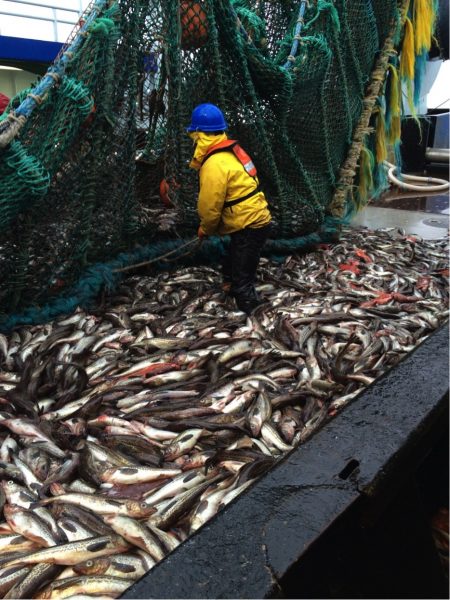Conference will explore climate's effects on fish
May 1, 2017
Paula Dobbyn
907-274-9698

Scientists and fishery managers will gather May 9-11 in Anchorage to discuss how climate warming, sea ice loss and ocean acidification affect fish in Arctic and sub-Arctic waters.
The 31st Wakefield Symposium, organized by Alaska Sea Grant, will bring nearly 100 researchers and managers together at the Hotel Captain Cook.
They'll discuss:
- The influence of ocean temperatures on Chinook salmon.
- The Blob, a region of warm North Pacific water, and walleye pollock.
- The effects of ocean acidification on Pacific cod.
- Evaluating management strategies under projected environmental changes.
- Coastal community adaptation to environmental variability and climate change.
A full agenda can be found at www.alaskaseagrant.org.
Other sponsors include National Oceanic and Atmospheric Administration Fisheries, North Pacific Fishery Management Council, North Pacific Research Board, University of Alaska Fairbanks College of Fisheries and Ocean Sciences, and North Pacific Marine Science Organization.
Alaska Sea Grant is a statewide marine research, education and outreach program operated as a partnership between UAF and NOAA. Alaska Sea Grant Marine Advisory Program agents help Alaskans wisely use, conserve and enjoy marine and coastal resources.


